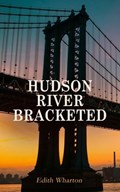Hudson River Bracketed by Edith Wharton is a captivating exploration of ambition, creativity, and social boundaries in early 20th-century America. At its heart lies a gifted young writer who struggles to find his voice amid the allure of high society and the restraints of conventional expectations. As he journeys from a modest background to the sophisticated world of Manhattan's literary circles, Wharton paints a riveting portrait of the conflicts that arise when personal desire, moral codes, and cultural pressures collide. The novel's rich atmosphere immerses readers in the era's evolving literary landscape, showcasing the power of art to reshape both personal and public aspirations. Through finely drawn characters and sumptuous detail, Wharton unearths deep emotional truths, revealing the transformative potential of artistic passion in a restrictive environment. Blending elements of romance, drama, and social commentary, Hudson River Bracketed offers a vivid window into the complexities of class and the pursuit of creative fulfillment. Resonating with the wit and compassion characteristic of Wharton's oeuvre, it remains a timeless narrative about longing, self-discovery, and the sacrifices often demanded by dreams—ensuring its place as an essential read for admirers of both literary history and compelling storytelling. Edith Wharton (1862–1937) was the first woman to receive the Pulitzer Prize, famed for her acute social observations and graceful prose, which dissected the hypocrisies of America's Gilded Age and beyond, influencing American literature through enduring works such as The House of Mirth, Ethan Frome, and The Age of Innocence.

